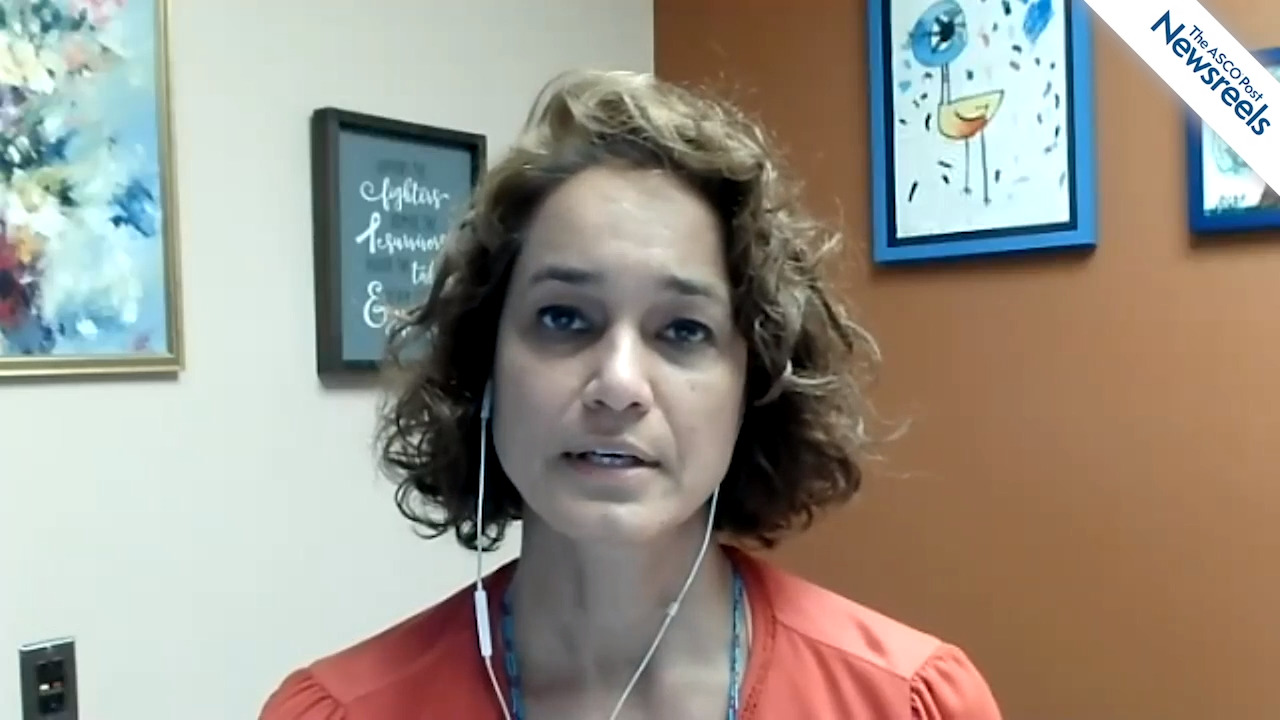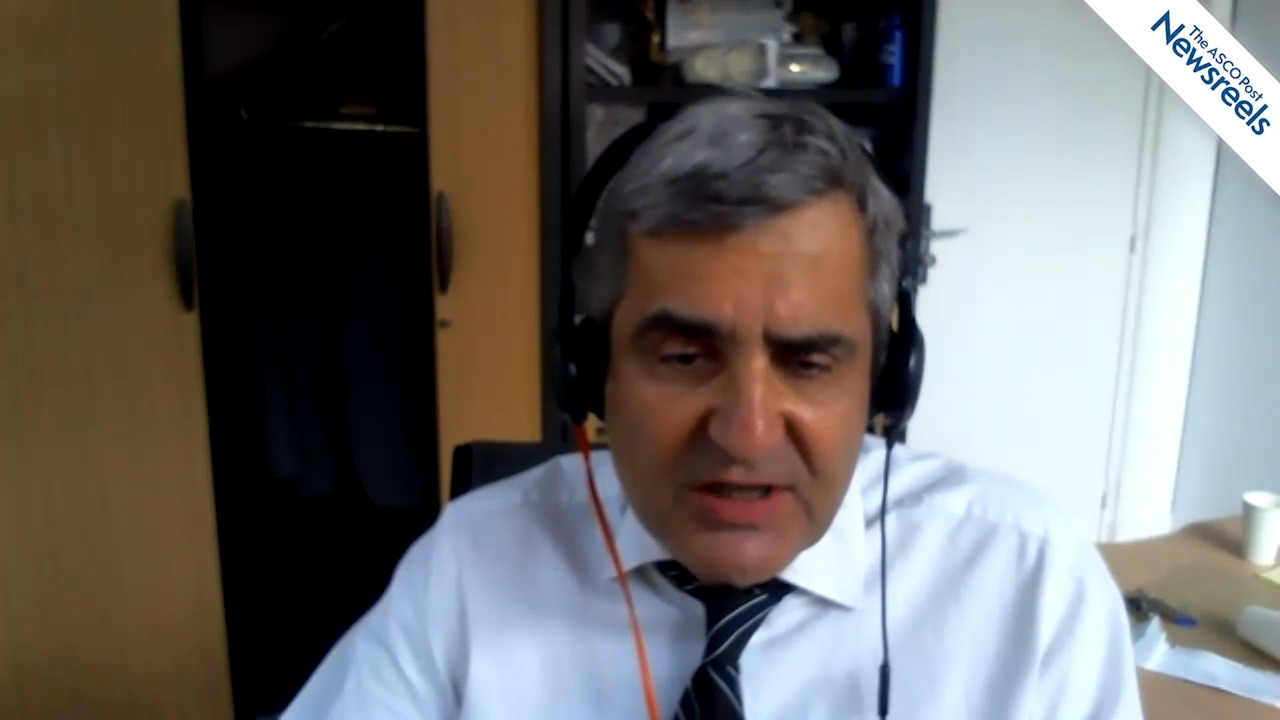Karim Fizazi, MD, PhD, on Prostate Cancer: Abiraterone Acetate, Prednisone, and Radiotherapy in Metastatic Disease
2021 ASCO Annual Meeting
Karim Fizazi, MD, PhD, of Institut Gustave Roussy, discusses first results from the phase III PEACE1 trial, which showed that abiraterone plus androgen-deprivation therapy and docetaxel improves radiographic progression-free survival in men with de novo metastatic prostate cancer (Abstract 5000).
The ASCO Post Staff
Debora S. Bruno, MD, of Seidman Cancer Center at Cleveland Medical Center, discusses study findings that show Black patients with advanced or metastatic non–small cell lung cancer tend to be less likely to undergo biomarker testing or to be treated in clinical trials than White patients. Recommended broad-based testing, says Dr. Bruno, may help ensure equal access to quality care and clinical trials (Abstract 9005).
The ASCO Post Staff
Evan J. Lipson, MD, of Johns Hopkins University, discusses primary phase III results from the RELATIVITY-047 study, which showed that relatlimab plus nivolumab as a fixed-dose combination may improve progression-free survival compared with nivolumab monotherapy in patients with advanced melanoma. This is the first study to demonstrate a benefit from dual inhibition of the LAG-3 and PD-1 pathways.
The ASCO Post Staff
Nadia Harbeck, MD, PhD, of Ludwig Maximilian University of Munich, discusses first phase III results from a prospective high-risk cohort of patients with luminal breast cancer, which showed a good prognosis in some women with more than four positive lymph nodes and low recurrence scores. The study also showed that a lower postendocrine Ki67 index and limited tumor burden may be promising criteria for chemotherapy de-escalation strategies, even in patients with high recurrence scores (Abstract 504).
The ASCO Post Staff
Thierry André, MD, of Hôpital Saint-Antoine, discusses final overall survival data for the phase III KEYNOTE-177 study, which confirmed pembrolizumab as a new standard of care for first-line treatment of patients with microsatellite instability–high/mismatch repair–deficient metastatic colorectal cancer (Abstract 3500).
The ASCO Post Staff
Priya Rastogi, MD, of the University of Pittsburgh, discusses results from the NRG Oncology/NSABP B-42 trial, which evaluated the utility of the 70-gene MammaPrint assay in predicting the benefit of extended letrozole therapy in patients who had completed 5 years of adjuvant endocrine therapy (Abstract 502).





